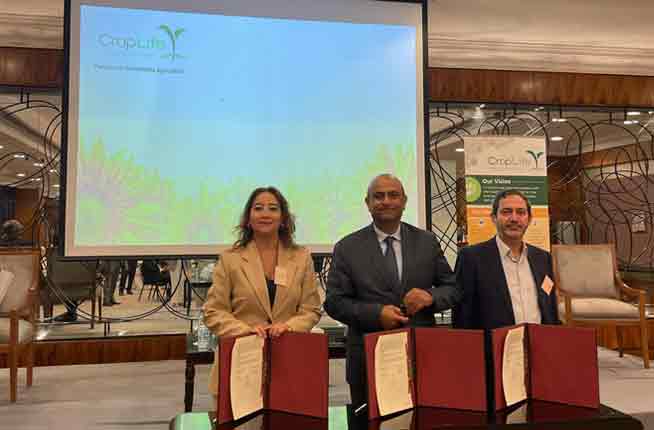CropLife Africa Middle East MENA Regional Hub Meeting in Amman, Jordan on the topic of “Agricultural Innovation: Challenges and Solutions Towards Sustainable Food Systems
On 11 & 12 July 2023, CropLife Africa Middle East held its Middle East North Africa Regional Hub Meeting in Amman, Jordan, under the banner “Agricultural Innovation: Challenges and Solutions Towards Sustainable Food Systems.”
The objectives of the meeting were to:
CropLife Africa Middle East and AMATPA (Agricultural Materials Traders & Producer Association) were honored to sign a Memorandum of Understanding with the Jordan Ministry of Agriculture, showing the significant role of agricultural innovation moving forward in ensuring food security and improving farmers’ livelihoods.
We would like to take this opportunity to thank all participants for their presence, notably representatives from our hosts, the Jordan Ministry of Agriculture, other regulatory authorities from the MENA region, industry and CropLife network.
Some critical messages from the meeting – Day #1:
Transforming Regulatory Framework for biologicals in the MENA region:
Access to biological products is critical as an additional tool in the farmer’s hands to fight pests and diseases. Yet, regulatory frameworks to facilitate their registrations are still largely in progress in most MENA region countries. Country representatives resolved to foster information exchange amongst themselves and to put in place policies, laws, regulations, guidelines and administrative instruments that recognize the types of products, ensure a reduced data requirements package, risk-based approach and have a fast-track system.
Persisting challenges in stewardship in the MENA region:
Resistance management is vital to IPM, and CL AME takes resistance management seriously. However, there is limited knowledge of pest resistance.
Below our key takeaway messages from day #2 of CropLife Africa Middle East Regional Hub Meeting under the banner of “Agricultural Innovation: Challenges and Solutions Towards Sustainable Food Systems”, in Amman, Jordan.

